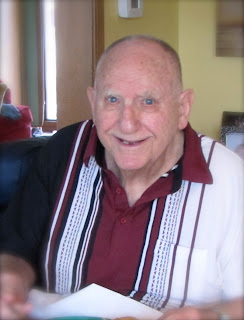I can only speak for myself—but Holy week was exhausting. I'm not sure a pastor is supposed to say that, but there it is.
In a strange way, I felt that I was giving birth to something wild and wonderful. It was a privilege to be involved with both Good Friday services and to read so many of the passages dealing with Jesus' death and sacrifice to our congregation. To serve communion twice in one evening, to have the privilege of saying to young and old, "The body of Christ, broken for you" as they took the elements, remembering. I felt as if I had entered the Story in a new and fresh way, as if I was there, as if I was witnessing the horror and the desertion of the disciples, the blood, and the final cry declaring it was done. Over. Finished.
Then there was the earliness of Easter morning—but unlike the female disciples who ran to anoint his body for burial, I was simply helping to set up breakfast for our choir and orchestra. Elements of a different kind. The rush of the celebration followed by smiles of victory, the Easter song, hands raised to the Risen Savior, folks crying out in song, "Worthy is the Lamb!"
Hands to shake, girls twirling their skirts, guests to welcome, the lonely to hug, workers to encourage. Easter dinner with family, warm fellowship, laughter, remembering, observing grief of loss loved ones together, being.
Any sane person would have let it at that. Perhaps I should have.
And yet. Although it would have been easy to skip the Sunday night Bible study for women in addiction recovery, something told me that would be passing up an opportunity I didn't want to miss. Bible studies teach themselves on Resurrection Sunday, as people yearn for the details of Christ's death and the story of the empty tomb. On at least this one day of the year, they want to know what it means to them. And, of course it means everything. New life. The old has gone. The new has come!
So I went, laboring over the story with enthusiasm, engaging them as if we were there, reading John's account with excitement and joy. As my voice began to strain from all the speaking, my heart threatened to give way as well. Two of the women who have been a vital part of our study, engaged, attentive, those in whom Jesus appeared to be doing something so beautiful, ditched the whole recovery program. Without a goodbye. These are the times I feel betrayed, when my heart begins to question what God is doing there. Although I knew better, I wanted to punch a wall. My love for them made me feel like my heart might explode, and I wanted to run from the brokenness of it all.
You see, while you were enjoying your Easter, dressing up in your Sunday best, doing Easter-like things and enjoying yourself, hopefully remembering Resurrection Day—others were wondering how they will go on at all.
People were running back to the addictions that destroyed them. They were crying over failed marriages, wondering how they will pay their rent this month, begging God to bring them a job, wondering what they will do about an unplanned pregnancy.
I guess I never thought about this before getting involved in the middle of the mess; now I think about it all the time.
As I went to bed last night under a cloud of grief, I couldn't even name what I would need today to allow my spirit to be restored. It turns out what I needed most, more than anything, was a simple time of communing with God. In the book
Celebration of Discipline, we are studying Christian meditation and the power of Christ transforming us in these silent, surrendered places.
And so this morning I practiced the simple exercise of holding my hands down, as I tearfully released all those persons and situations in which my heart aches for resolution and grace to prevail. The tension began to drain as I slowly let go. Hands up, I received the grace of our Savior, asking for his empowerment in every area of my life I could think of, accepting his sufficiency and the empowerment the Holy Spirit gives to each of His children.
The key thing is this—I received.
No one can force this newness of life on those who insist on clinging to the old, but it is available all the same. And that is the only truth that allows me to let go. It's been a bumpy Easter, but today my soul is being fed, nurtured, watered. And finally, strengthened. That is the only place—this quiet, surrendered place—from which new life and hope can come again.
Do you practice Christian meditation? How does reflecting on God change your heart, your outlook, and your life?




